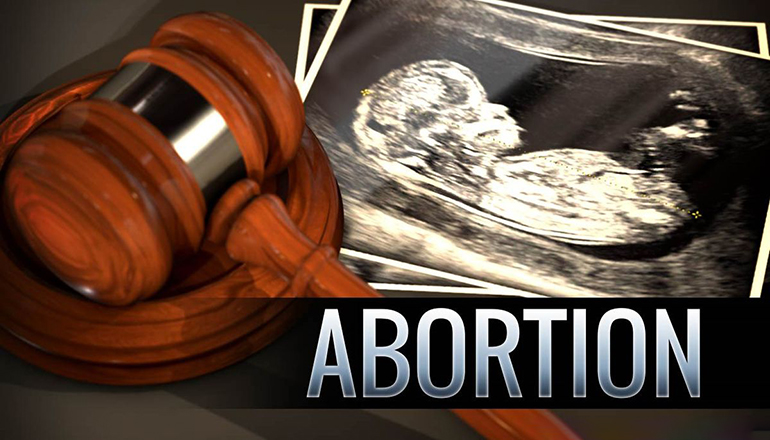(Missouri Independent) – Making people who want to force a statewide vote on newly passed laws wait while the Secretary of State writes a ballot title undermines the constitutional right of referendum, attorneys for an abortion-rights group argued Wednesday to the Missouri Supreme Court.
A ballot title was “not necessary for most of Missouri history,” Jessie Steffan, attorney for No Bans on Choice, said as she asked the court to toss out two laws that effectively blocked a referendum in 2019 on a new state abortion law.
Defending the two laws, representatives of Attorney General Eric Schmitt’s office told the court that having a pre-circulation review of a petition, when the ballot title is written, means voters are better able to understand what they are signing.
Lawmakers can make laws regulating the right of referendum, assistant attorney general Jason Lewis argued. A petition drive in 2017 succeeded in putting a right-to-work law on the ballot, proving the laws do not undermine those rights, Lewis said.
To be successful, a referendum petition must have 5 percent of the signatures of the voters in six of the state’s eight congressional districts. The petitions must be submitted within 90 days of the adjournment of the legislative session that passed the new law.
The laws governing pre-circulation review allow up to 51 days to complete the process. That review, even if it takes all the time allotted by statute, means “there can still be enough time to get signatures for a modern-day referendum effort,” Lewis said.
The hearing Wednesday was on the state’s appeal of Cole Circuit Judge Jon Beetem’s December ruling that declared the review to be unconstitutional.
Testimony in the trial showed that vendors who provide signature-gathering services estimated a petition drive could be completed in as little as five weeks if a campaign is willing to spend $3 million or more on the effort.
The judges on Wednesday seemed skeptical of the arguments from both sides.
Judge Patricia Breckenridge pressed Lewis on where the line was between an acceptable hurdle for petitioners and one that unconstitutionally undermines the right of referendum.
“As long as someone with millions of dollars can overcome the regulation, that is where we ought to draw the line?” she asked.
And Judge W. Brent Powell, when Steffan argued that the delay before petitioners can gather signatures is unconstitutional in all situations, said he’s having difficulty seeing her point.
The right to work petition went through the review and signatures were being gathered before lawmakers adjourned because the bill was passed early in the legislative session.
“What happens if a bill is passed in January?” Powell said. “What I am struggling with is why you are stuck on half of 90 days.”
The case before the court was filed after lower courts found, in a separate case, that Secretary of State Jay Ashcroft had improperly rejected a referendum petition on a strict new abortion law passed in 2019.
Ashcroft rejected the petition because one section of the bill was already in effect and a referendum cannot be held on laws already in place. By the time the courts reversed his decision, so little time remained in the 90-day window that the effort was abandoned.
Under the 2019 law, physicians who perform abortions after the eight-week gestational period could face five to 15 years in prison. Women who terminate their pregnancies would not be prosecuted.
The law also penalizes abortions sought solely because of a prenatal diagnosis, test, or screening indicating Down Syndrome or the potential of Down Syndrome in the pregnancy. Anyone participating in the abortion would be subject to civil penalties, including a loss of professional licenses.
The law has not been enforced because it was challenged by Reproductive Health Services of Planned Parenthood, based in St. Louis, which operates the state’s sole remaining abortion clinic. U.S. District Judge Howard Sachs issued a preliminary injunction one day before it was to take effect. The Eighth U.S. Circuit Court of Appeals last week heard arguments on an appeal of Sachs’ order.
In the arguments Wednesday, Steffan tried to keep the court focused on the history of the referendum process. From the time it was added to the constitution in 1908 until 1997, no ballot title was required to begin gathering signatures.
Along with writing a title, the review process includes a 15-day comment period, determines whether the petition is in the proper form and requires the State Auditor’s office to issue an estimate of the fiscal impact of the proposal.
Requiring the review is an unreasonable burden on the right of referendum, Steffan said.
“A ballot title is not necessary for a petition,” she said because the text of the law at question is printed on the petition. “At the ballot box, all the voter has is the ballot summary.”
In his arguments, Lewis said the court didn’t need to look at the constitutional questions to overrule Beetem.
The plaintiffs, which also include the ACLU of Missouri, are the same as the ones who sued Ashcroft in 2019 over his decision to reject the referendum petition, Lewis said. They are trying to raise issues that should have been raised in that case and by law are barred from doing so again.
“These are claims that could have been raised and should have been raised,” Lewis said.







